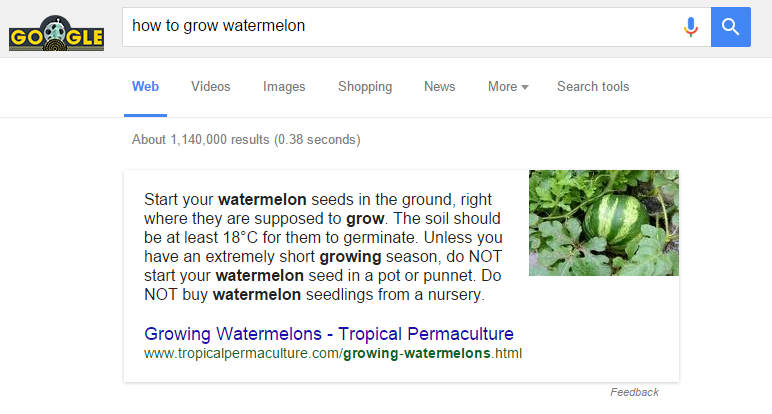I have a bit of a love-hate relationship with Google answers. As a regular person, they do help me save that precious 2.3 extra seconds of time that it would take to actually click on a search engine result versus just seeing the answer straight away. As a marketer and SEO however, I can’t help but wonder what the increasing prevalence of Google’s rich answers can mean for our clients, CTRs, and everything to do with how we’re doing on-site SEO.
Recent reports state that Google rich answers are now answering a whopping 31.5% of search queries (up from reports of just 19% earlier this year in February), signalling another ploy in the search engine’s attempt to streamline usage of the search engine, and perhaps even direct people towards its own products and services.
What are “rich answers”?
It sounds like the title to a self-help book which claims to teach you how to be a millionaire, but Google’s rich answers are those small boxes you sometimes see pop up at the top of SERPs. Depending on the query, they can take the form of a simple block of text (accompanied by an image or not), a map with directions, images, or various charts and tables.
Here’s a recent example from a search I was conducting over the weekend:

You can see more examples of different rich answer formats here.
Why Google may be favouring them over actual search engine results
There are a multitude of reasons why Google might be increasing prevalence of rich answers in SERPs. The purist few could be that Google is just trying, out of the kindness of their hearts, to make things better and easier for people, giving them a more pleasant experience while trawling the interwebs for info. Of course, even this has a commercial value, as it keeps people using Google? But could they also be trying to encourage people to click on other things instead of SERPs – Ads? Video results? Or is Google trying to start to wean people off searching for online stores and sites and start using services like its own Google Express? What do you think?
What this means for site owners
Rich answers are a double-edged sword. On the one hand, they’re purposely designed to reduce the need to actually click through to a site, inevitably meaning a reduction in overall CTRs, especially for results which show up further down the page.
But, there is a silver lining here – A recent study found that CTR for clickable rich answers is about 2 times better than that for the #1 ranking page on a SERP with no rich answer.
Why rich answers can actually be a good thing for your site
Another great point made by Stone Temple is that it can mean that people who are looking for a single answer and then clicking away are automatically weeded out before they even hit your site. In other words, it will increasingly mean that the people who do end up on your site are the ones who are genuinely interested in diving deeper and learning more about the topic that they’re looking for information on – Whether they’re looking for more information on which windows and doors are best for their home, or are looking to buy a new hard drive for their computer.
So, how to use rich answers to your own advantage?
Those who already have a great content strategy implemented on their site won’t have to change things up too much, especially if you’re taking the time to answer your user’s queries on your site through regular blogging and content marketing.
Link Assistant provides a helpful summary:
-
Start with long tail keyword research — you need to identify the commonly searched questions in your niche.
-
Create a piece of content that directly answers these questions. Make sure to include the question itself, and a direct answer to it — keep in mind that for rich answers, the structure of your answer is more important than your site’s relevance and authority.
-
Make sure your article is truly helpful and provides additional information on the matter. This will not only increase your chances of getting featured as a rich answer, but will help you entice more clicks.
-
Make your content easy to find for people and search engines (make sure it’s available to Google bots and easily accessible through your site’s navigation; share links to it on your social accounts; submit them via Google search console, etc.)
Another suggestion is to start answering more complicated questions in your onsite content, rather than questions that can be answered in just a few words or sentences. This will ensure you’re owning the traffic for longer-tail queries, which often tend to be the most commercially important anyway.
What do you think about the rise in rich answers, and what will it mean for marketers and SEO moving into 2016?
